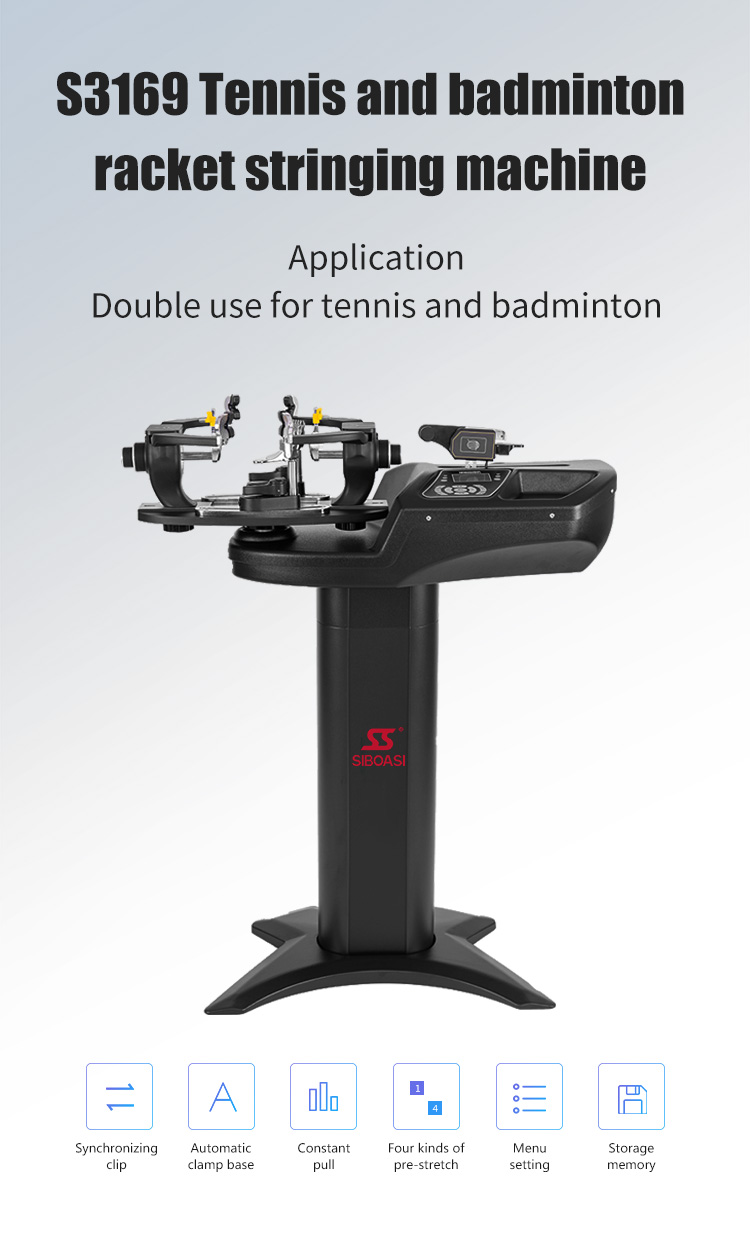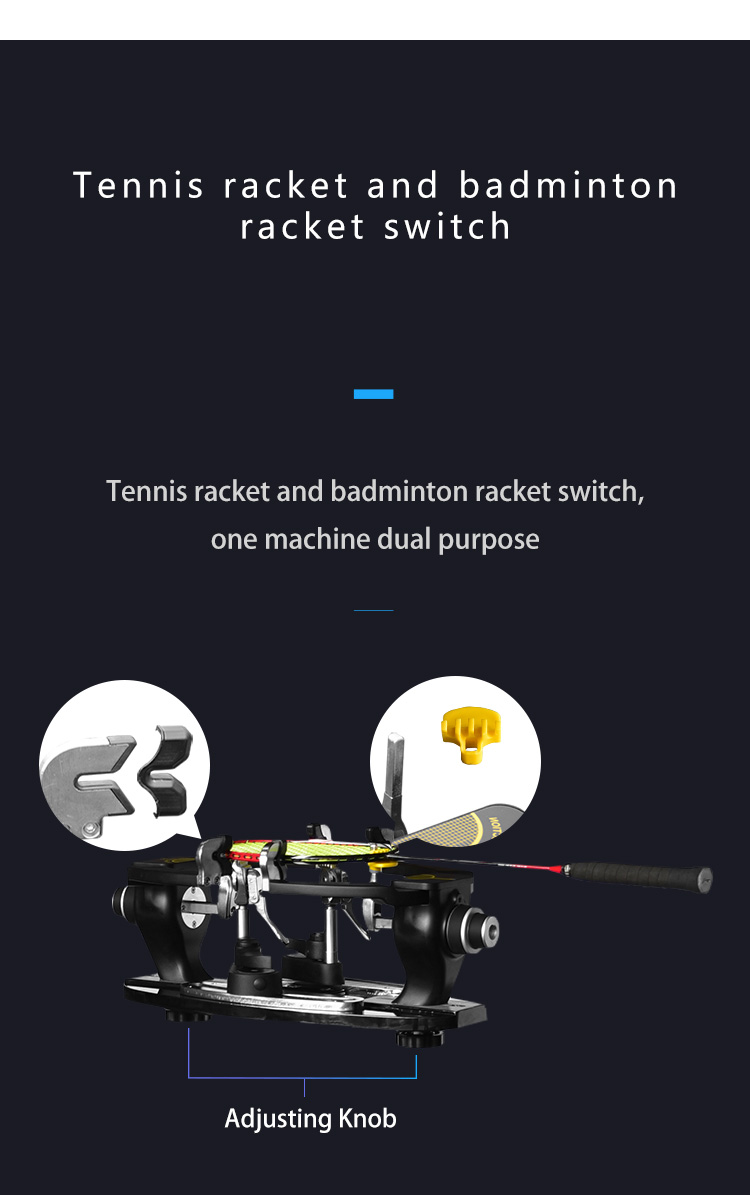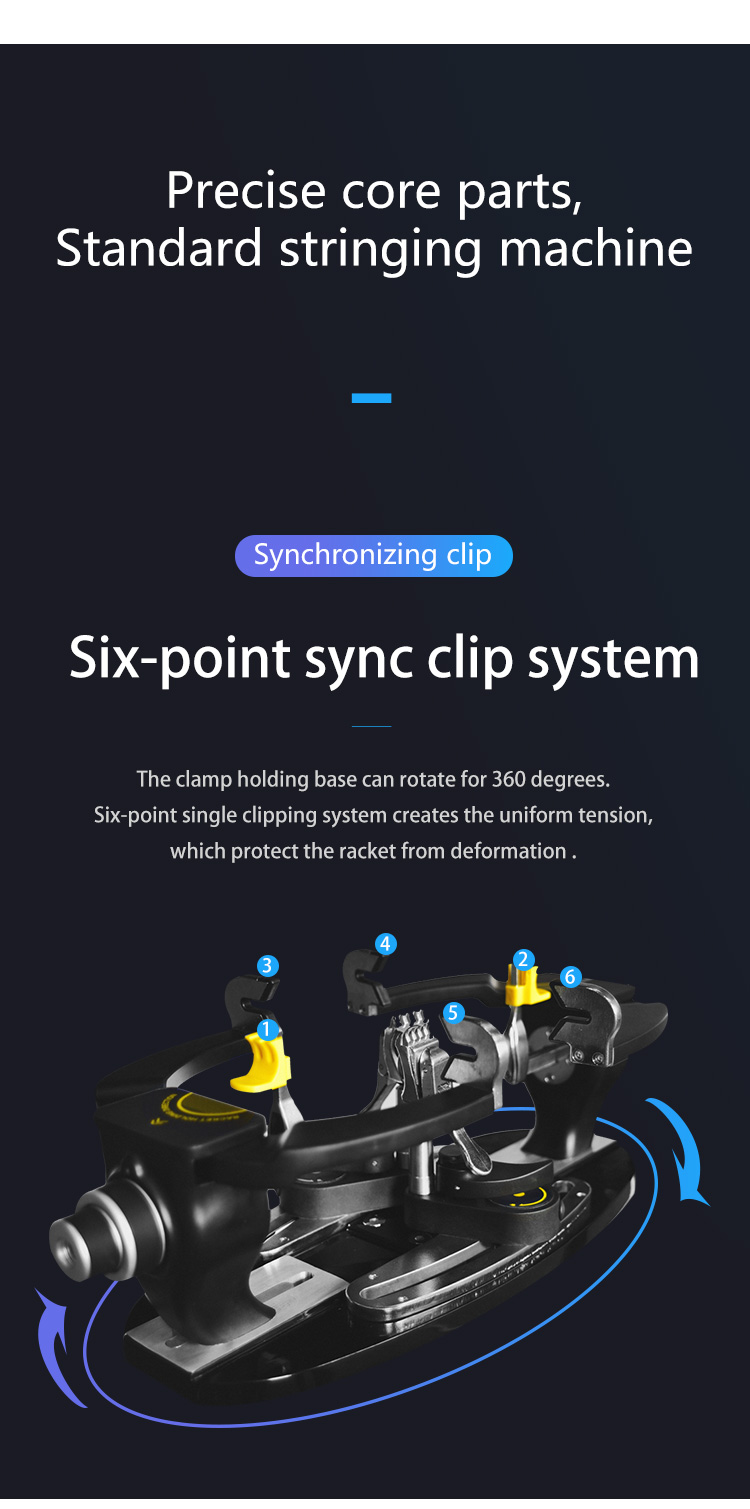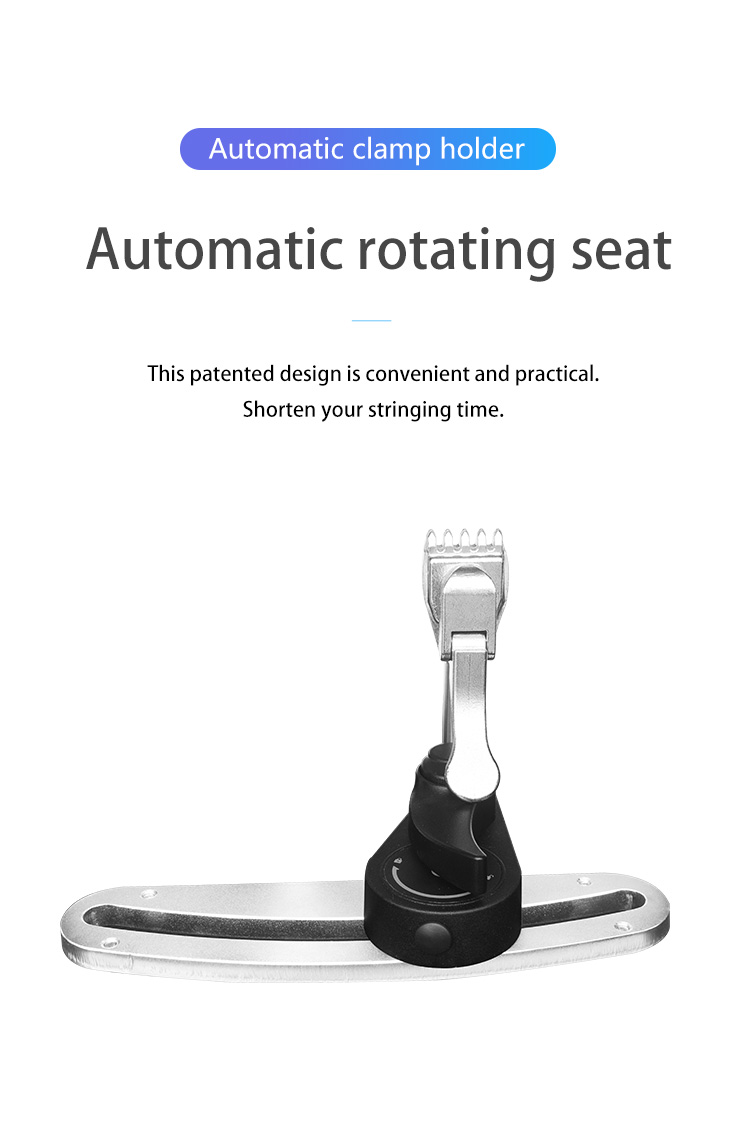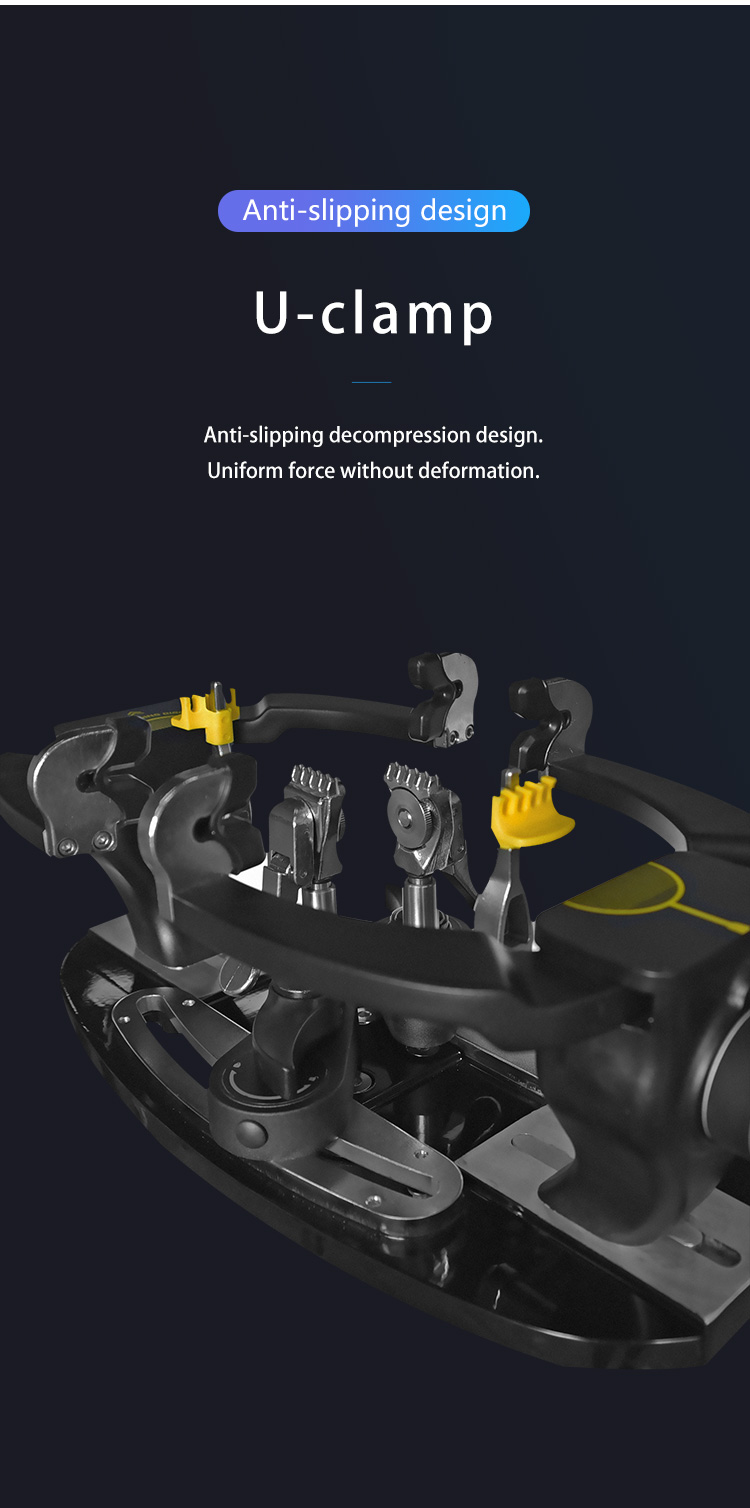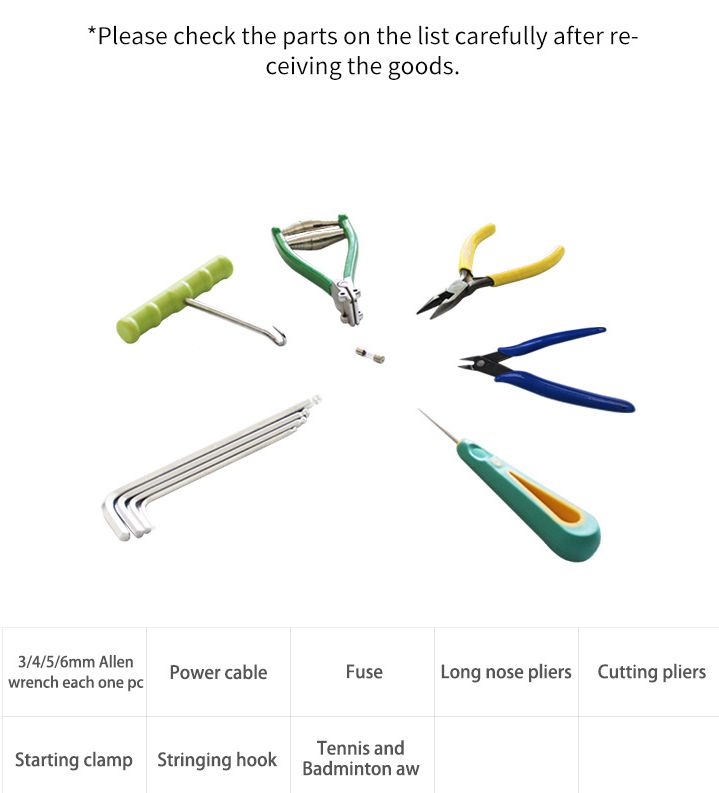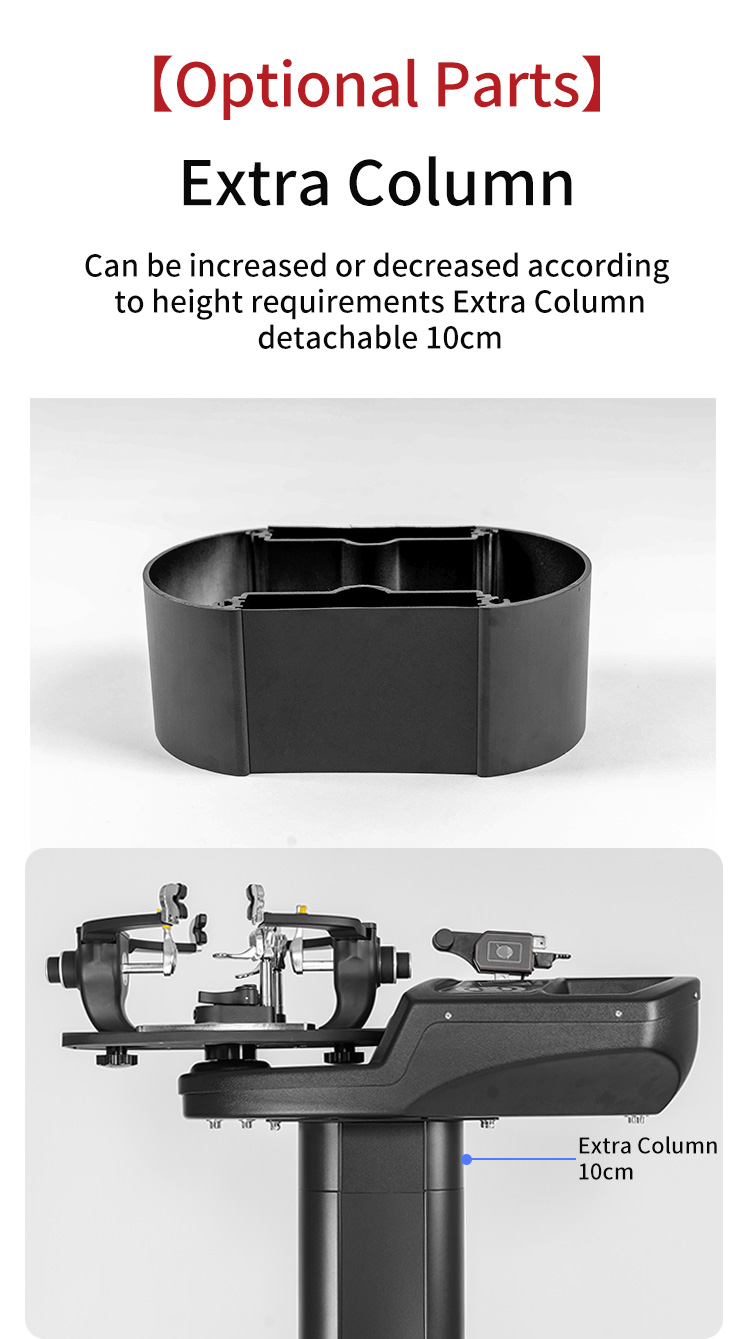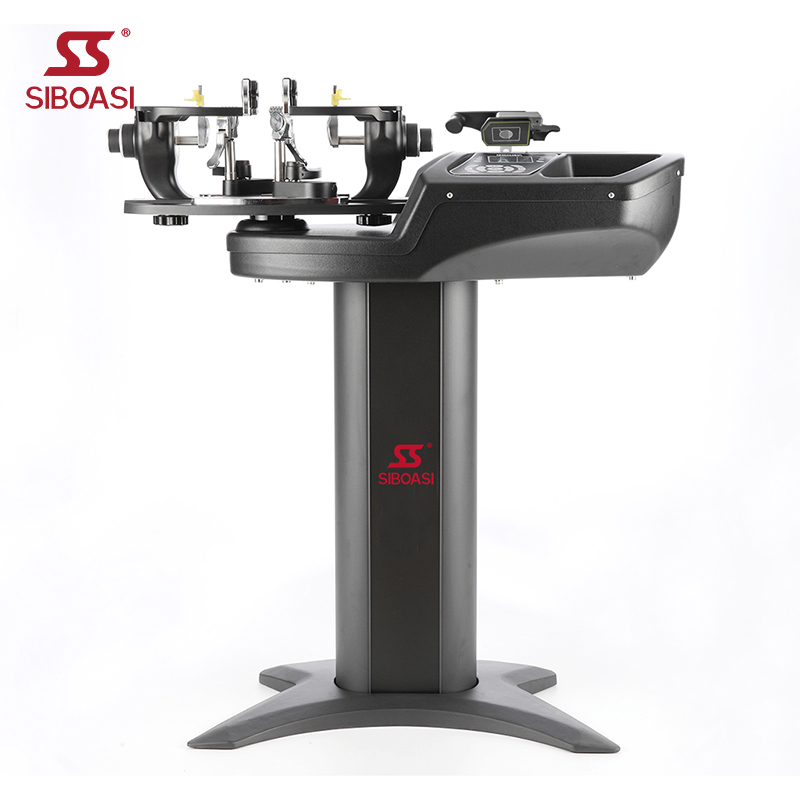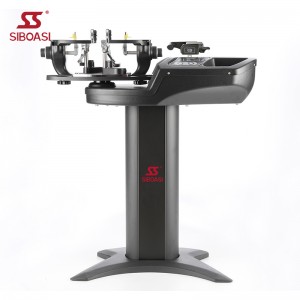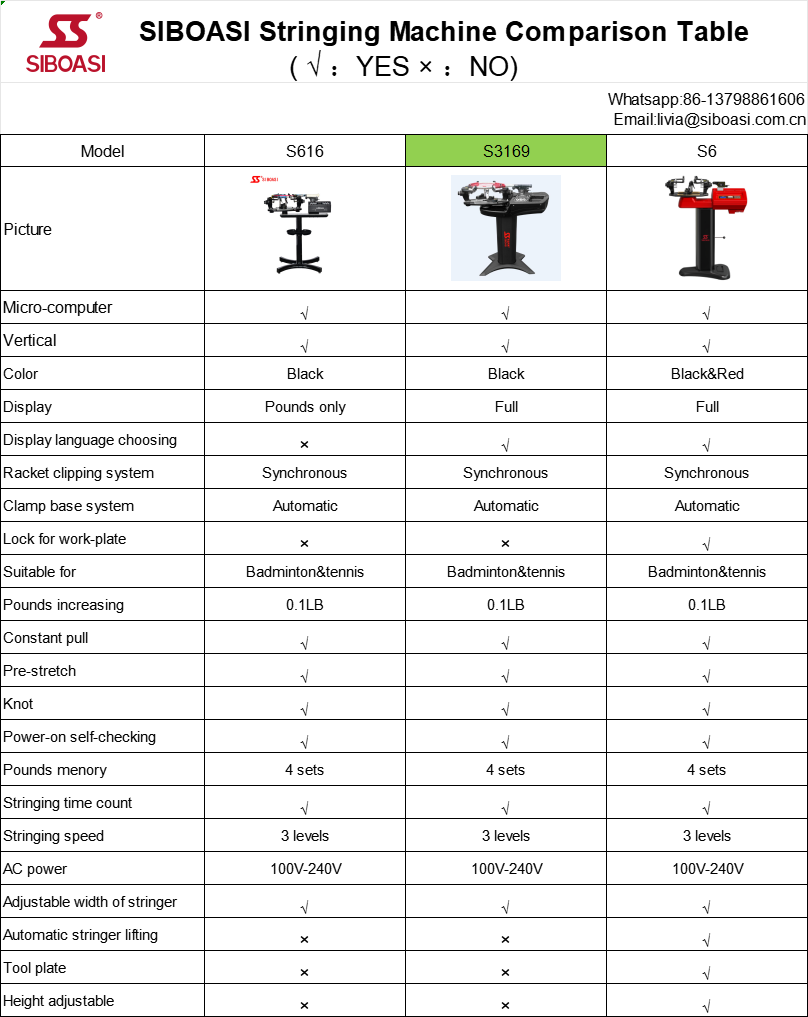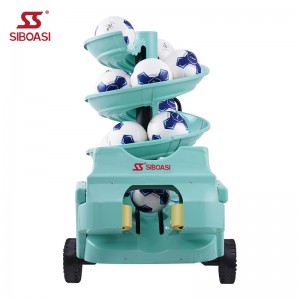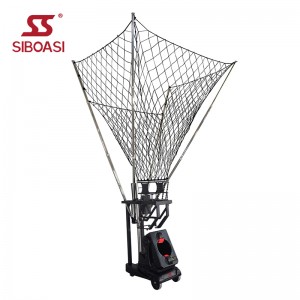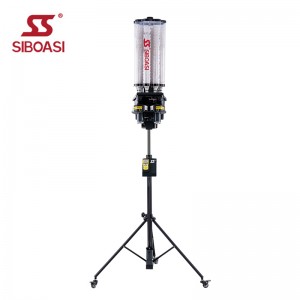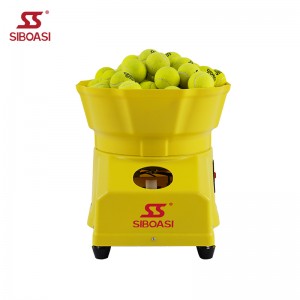SIBOASI Professional automatic stringing machine S3169
Product Highlights:

1.Stable constant pull function, power-on self-checking, automatic fault detection function;
2. Storage memory function, four groups of pounds can be arbitrarily set for storage;
3. Set up four sets of pre-stretching functions to reduce damage to the strings;
4. Memory function of pulling times and setting of three-speed pulling speed;
5. Knotting and pounds increasing setting, automatic reset after knotting and stringing;
6. Three-level setting function of button sound;
7. KG/LB conversion function;
8. Synchronous racket clamping system, six-point positioning, more uniform force on the racket.
9. Extra column with 10cm height optional for different height people
Product Parameters:
| Voltage | AC 100-240V |
| Power | 35W |
| Suitable for | Badminton and tennis rackets |
| Net weight | 39KG |
| Size | 47x100x110cm |
| Colour | Black |

More About SIBOASI automatic stringing machine
What are the differences when stringing a tennis racket and a badminton racket?
When stringing tennis and badminton rackets, there are a few key differences to consider:
String Tension: Tennis rackets typically have a much higher string tension than badminton rackets. Tennis strings typically require 50-70 lbs of tension, while badminton strings are usually in the 15-30 lbs range. This difference is due to the nature of the respective movements and the impact forces involved.
String: Tennis rackets generally have larger head sizes and denser strings than badminton rackets. The string pattern on a tennis racquet is usually in a grid-like configuration, providing a greater hitting surface area. Badminton rackets, on the other hand, generally have more open or varied patterns because shuttlecocks are lighter and slower and therefore require different stringing requirements.
String Types: Tennis and badminton strings are made from different materials to meet the specific requirements of each sport. Tennis strings are usually made of polyester, nylon, synthetic gut, or a blend of materials that provide a balance of durability, control, and power. In badminton, strings are usually made of synthetic materials such as nylon or multi filament, with an emphasis on providing good repulsion for powerful shots.
Stringing Techniques: While the general process of stringing tennis and badminton rackets is similar, there are some specific techniques involved. Badminton racquet stringing usually requires a knot at the bottom of the head to secure the string, while tennis rackets typically use clips and a string locking mechanism. It is important to follow the manufacturer's instructions and guidelines for each racquet type to ensure proper stringing.
Stringing Machine Compatibility: Some stringing machines are specially designed for tennis rackets, while others can accommodate both tennis and badminton rackets. Be sure to choose a machine that is compatible with the racquet you are going to string. If you plan to string both types of rackets, a machine with interchangeable or adjustable features would be ideal. For optimal performance, it is critical to understand stringing techniques and the specific requirements of each racquet type. If you have limited or unsure experience, it is best to consult a professional stringer who specializes in tennis and badminton rackets.
